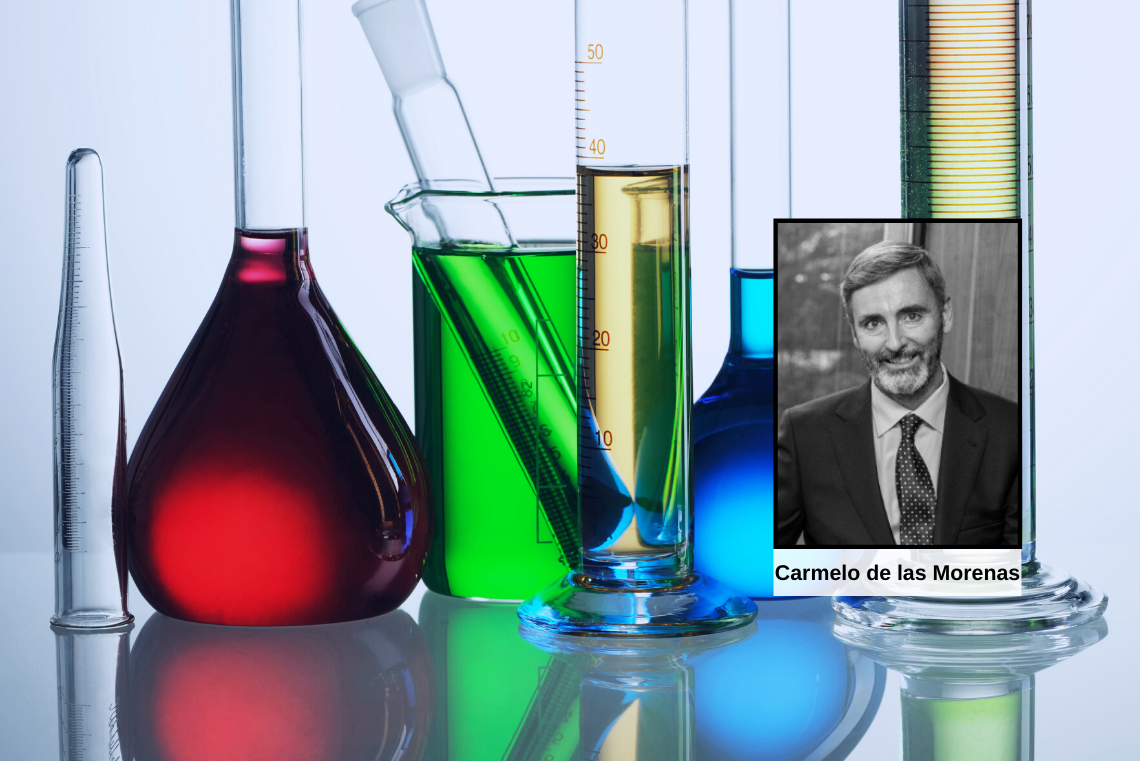Secondary buyouts in the Specialty Chemical Sector: the case of Iberchem

A secondary buyout (SBO) refers to a transaction involving the sale of a portfolio company by a private equity firm (PE) to another private equity firm. According to Pitchbook, since 2010 SBOs have jumped from one-third of all PE-backed exits to one in every two.
As portfolio companies age, many PE firms feel the pressure to, either negotiate fund extensions or find liquidity via divestments. Increasing competition in the PE industry, coupled with dry powder at record levels, has been major a contributor to the acceleration of SBO deals.
SBOs offer instant liquidity and tend to have lower regulatory requirements than those that come with an IPO or with an industrial sale that may involve potential market share conflicts. Conversely, many portfolio companies may still offer significant value beyond the 4 to 6 year investment period considered by most PEs.
Over the last 10 years, the scale, strength of corporate profits, and fragmentation of the Specialty Chemicals market have attracted significant interest from financial sponsors, with landmark deals such as Carlyle Group’s acquisition of AkzoNobel’s Specialty Chemicals business for US$12.5 billion (Carlyle teamed up with the sovereign wealth fund GIC in this transaction).
More recently this year, we learned about the announced acquisition of Lonza’s Specialty Ingredients business by the tandem Bain Capital/Cinven (valued at $4.7 billion). According to David Danon, Bain’s managing director, Bain and Cinven plan to use the company as “a platform for further industry consolidation.”
As PEs have realized the enormous value in the Specialty Chemicals sector, secondaries have gradually become a prime tool to provide liquidity, and no case illustrates it better than the M&A story of Iberchem.
The Spanish specialist in food flavorings and fragrances used in consumer products, from perfumes to detergents, was founded in the Spanish Southeast region of Murcia among orange, lemon, and many other aromatic jewels. This wealth of raw materials inspired a wide variety of captivating fragrances and an agile business model that is often quoted as the “Zara of fragrances.”
In 2001, the Spanish PE firm Espiga Capital acquired a 75% stake for an estimated enterprise value (EV) of €9M. Management, lead by one of the founders and CEO, Ramón Fernández, held the remaining stake. At that time the company reported revenues of €13M. With the entry of Espiga, Iberchem was able to finance the completion of the new factory in Alcantarilla (Murcia) and the acquisition of a new plant in Guangzhou (China).
Seven years later (2008), Espiga sold the company to Capital Alianza, a mid-cap specialized PE for an estimated EV of €35M. By then, the business model was well defined and the management team had ambitious growth plans. Iberchem reported revenues of €30M and was already exporting its products to more than 100 countries. Ramón Fernández and his team continued to be considered a key partner by the new financial sponsor.
In June 2013, a third Spanish PE, Magnum Capital, acquired 87% of Iberchem in a highly competitive auction for an estimated EV of €80M. Again, the new investor asked Mr. Fernández and his team to lead the new growth phase. By then, the fragrances specialist reported revenues of €60M and had two production centers in Spain and production and technology centers in China, Tunisia, Indonesia, Singapore, Malaysia, Colombia, Italy, Mexico, and India. Less than 24 months later (2015), Magnum lead a €90M recap since net financial debt was below 1x EBITDA. The new funds were used to pay out a €50M dividend and start an active M&A phase.
In the Summer of 2017, Paris-based Eurazeo snapped up the Spanish fragrance maker for an EV of €405M. At that time, Iberchem’s revenues had doubled to €120M and the company had a very diversified customer base of more than 3,400 customers, mainly leading local and regional consumer brands. Eurazeo planned to benefit from the rise of the middle class in emerging markets and the consolidation in the chemicals and household products sectors. The French listed buyout house recognized the importance of Fernández’s experience and partnered again with the seasoned team.
Finally, at the end of 2020, UK specialty chemicals giant, Croda, acquired Iberchem for an EV of €820M to create a new full-service formulation and fragrance offering. “The acquisition supports Croda’s purpose of ‘Using Smart Science to Improve Lives,’ ” the company said. “It also helps drive the group’s strategic objectives by focusing on faster-growing core consumer markets, adding a new, high-growth adjacency to Croda’s existing personal care and home care businesses,” said the company.
Iberchem has 850 employees, 14 manufacturing facilities, 10 R&D centres with 240 R&D technicians including 22 perfumers and nine flavourists. Sales for 2020 were estimated at €190M. About 20% of the rest in its Scentium flavours business, principally for food, pharmaceutical, and oral care applications. Croda expects to achieve cross-selling and other revenue synergies of at least €25 million/year by the third year and €48 million/year by the fifth. It will run the new acquisition as a separate entity.
Since Croda announced the Iberchem acquisition its stock price has risen more than 50%, from GBP 5.9 in November 2020 to GBP 9.2 in September 2021 (an increase of €4.5 Bn in market cap).
As the Specialty Chemicals sector continues to attract investments from industrial and financial sponsors, CDI Global wants to offer companies its extensive knowledge of the sector and international reach to enable clients to accomplish their growth potential and liquidity needs. Please, don’t hesitate to call us to discuss your M&A plans.
Carmelo de las Morenas, CDI Global Iberia

















































